

Simple Education essential guides Advances in Coronary Physiology is the premiere international course in coronary physiology. This is the 4th year this 5* rated course has been run which has quickly become established as the premier global interventional course in state-of-the-art coronary physiology. The course provides all you need to know to understand coronary physiology from learning the background basics of coronary physiology, to understanding the clinical trial data and implementation of coronary physiology in the catheter laboratory.
New for 2016 is the addition of an online teaching resource, the Simple Education application which will give access to video content from the days' talks, and a raft of other online educational and learning resources which continue your learning experience and connect you with the interventional community after the course finishes.
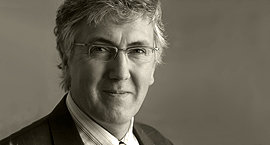 |
Prof Javier EscanedClinico San Carlos,Madrid |
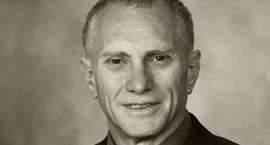 |
Prof Amir LermanMayo Clinic in Rochester,Minnesota, USA |
 |
Dr Justin DaviesImperial College,London |
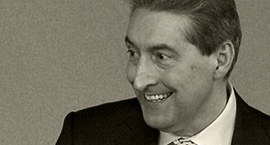 |
Prof Carlo Di MarioRoyal Brompton,London |
Agenda: Monday 12th September 2016
Tuesday 13th September 2016
|
 Dr Justin Davies is a clinical academic and consultant interventional cardiologist at the National Heart and Lung Institute, Imperial College London. After training at Imperial College, he won a prestigious BHF research fellowship to study in arterial haemodynamics. Since then he has continued to work on the development of mathematical algorithms to aid understanding of large artery physiology and to develop new tools to assess arterial disease. The holder of several patents, he has published widely in the field of hypertension, coronary and large artery physiology and is the winner of many national and international awards. He has several international collaborations, and is the developer of iFR and the co-principal investigator of the ADVISE studies, the DEFINE-FLAIR, and ORBITA studies. Justin has an interest in renal denervation, and has lead the first-in-man studies to evaluate the safety of this technique to patients with chronic systolic heart failure (REACH studies).
Dr Justin Davies is a clinical academic and consultant interventional cardiologist at the National Heart and Lung Institute, Imperial College London. After training at Imperial College, he won a prestigious BHF research fellowship to study in arterial haemodynamics. Since then he has continued to work on the development of mathematical algorithms to aid understanding of large artery physiology and to develop new tools to assess arterial disease. The holder of several patents, he has published widely in the field of hypertension, coronary and large artery physiology and is the winner of many national and international awards. He has several international collaborations, and is the developer of iFR and the co-principal investigator of the ADVISE studies, the DEFINE-FLAIR, and ORBITA studies. Justin has an interest in renal denervation, and has lead the first-in-man studies to evaluate the safety of this technique to patients with chronic systolic heart failure (REACH studies).
 Prof Javier Escaned is Consultant Interventional Cardiologist / Associate Professor and Head of Section, Cardiology Department, Hospital Clinico San Carlos (Madrid, Spain). He trained as a cardiologist the United Kingdom (Queen Elizabeth University Hospital, Birmingham and Walsgrave Hospital, Coventry) before moving to the Thoraxcenter / Rotterdam (The Netherlands), where he obtained his PhD degree in 1994. Author of more than 200 scientific articles, books and book chapters on different aspects of interventional cardiology, imaging and physiology, his latest contribution is the textbook “Coronary Stenosis. Imaging, Structure and Physiology”, co-edited with Patrick W Serruys. He is currently co-director or EuroPCR. Some of his additional interests are philosophy, education and music.
Prof Javier Escaned is Consultant Interventional Cardiologist / Associate Professor and Head of Section, Cardiology Department, Hospital Clinico San Carlos (Madrid, Spain). He trained as a cardiologist the United Kingdom (Queen Elizabeth University Hospital, Birmingham and Walsgrave Hospital, Coventry) before moving to the Thoraxcenter / Rotterdam (The Netherlands), where he obtained his PhD degree in 1994. Author of more than 200 scientific articles, books and book chapters on different aspects of interventional cardiology, imaging and physiology, his latest contribution is the textbook “Coronary Stenosis. Imaging, Structure and Physiology”, co-edited with Patrick W Serruys. He is currently co-director or EuroPCR. Some of his additional interests are philosophy, education and music.
 Dr Sayan Sen is a Cardiologist and NIHR Clinical Lecturer at Imperial College London. His research interests are dedicated to improving patient care. As such, they include the development and validation of new diagnostic tools, determining how the design of comparative efficacy studies can affect clinical use of competing therapies and the development and application of tools that permit a more patient centered approach to therapy. He studied Medicine at University College London (UCL), achieving a First Class (Honours) Bachelor of Science degree in Medical Sciences & Neuroscience in 2000 and graduated with distinction (Surgery) in his final MBBS Examinations in 2003. He trained as a junior doctor on the Hammersmith and UCL medical rotations prior to being appointed as a Cardiology Specialist Registrar in the North West London region in April 2006 and a NIHR clinical Lecturer in 2013. One of the themes of his research is to determine the need for potent vasodilators when assessing coronary stenosis severity. Working with Dr Justin Davies, Dr Sen’s PhD introduced and developed a new technique of stenosis evaluation (the instantaneous wave-free ratio, iFR). He is the first author of ADVISE and CLARIFY - two investigator lead studies that demonstrate the potential of iFR and challenge current concepts of coronary physiology. Currently, in addition to being the Principal Investigator of several first in man physiological studies, he is also the Medical Director of the FLAIR trial – a global multi-centre randomized study comparing iFR to existing techniques.
Dr Sayan Sen is a Cardiologist and NIHR Clinical Lecturer at Imperial College London. His research interests are dedicated to improving patient care. As such, they include the development and validation of new diagnostic tools, determining how the design of comparative efficacy studies can affect clinical use of competing therapies and the development and application of tools that permit a more patient centered approach to therapy. He studied Medicine at University College London (UCL), achieving a First Class (Honours) Bachelor of Science degree in Medical Sciences & Neuroscience in 2000 and graduated with distinction (Surgery) in his final MBBS Examinations in 2003. He trained as a junior doctor on the Hammersmith and UCL medical rotations prior to being appointed as a Cardiology Specialist Registrar in the North West London region in April 2006 and a NIHR clinical Lecturer in 2013. One of the themes of his research is to determine the need for potent vasodilators when assessing coronary stenosis severity. Working with Dr Justin Davies, Dr Sen’s PhD introduced and developed a new technique of stenosis evaluation (the instantaneous wave-free ratio, iFR). He is the first author of ADVISE and CLARIFY - two investigator lead studies that demonstrate the potential of iFR and challenge current concepts of coronary physiology. Currently, in addition to being the Principal Investigator of several first in man physiological studies, he is also the Medical Director of the FLAIR trial – a global multi-centre randomized study comparing iFR to existing techniques.

Dr Rasha Al-Lamee is an Interventional Cardiologist at Imperial College Healthcare NHS Trust. Her sub-speciality interests are complex coronary intervention, coronary physiology and invasive intra-vascular assessment. She has 8 years of Cardiology experience, including an Interventional Fellowship with Professor Antonio Colombo in Milan. She completed her speciality training at Hammersmith Hospital, London, and is currently working as both an Interventional Cardiologist and Clinical Researcher at Imperial College. She is currently leading the ORBITA trial as part of a PhD programme under Dr Justin Davies and Professor Darrel Francis.
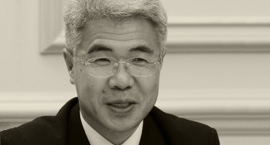
Prof Takashi Akasaka graduated from Wakayama Medical University in 1982 and finished his residency at Kobe City Medical Center General Hospital. He was a clinical fellow at Harefield Hospital in the United Kingdom in 1987. Since 1989, he had done clinical research work in the field of coronary physiology using echocardiography, pressure wire and flow wire extensively at Kobe City Medical Center General Hospital as a director of cardiac catheterization laboratory for 8 years. After he moved to Kawasaki Medical School as an associate professor, he started OCT in addition to coronary physiology in 1999. He became Professor of Wakayama Medical University in 2005 and he has been devoted to the clinical research work using OCT. He has published many papers regarding the pathophysiology of ACS or DES healing process using OCT in collaboration with his colleagues in addition to coronary physiology research. Based on his clinical and research work, he has been an executive board member in various cardiology societies and a course co- director of several coronary live-demonstration courses in the world.
 Dr Christopher Cook is a MRC Clinical Research Fellow at the National Heart and Lung Institute, Imperial College London. His research interests include coronary haemodynamic parameters to quantify the role of the collateral circulation in multi-vessel coronary artery disease. He was the winner of the inaugural PCR’s Got Talent award at EuroPCR2015 for the best oral abstract. He studied Medicine at UCL, graduating with Distinction and a total of 17 prizes including the prestigious Proxime Accessit Gold Medal Medicine 2009. He also achieved a First Class (Honours) Bachelor of Science degree in Physiology undertaking a period of research at The Hatter Cardiovascular Institute.
Dr Christopher Cook is a MRC Clinical Research Fellow at the National Heart and Lung Institute, Imperial College London. His research interests include coronary haemodynamic parameters to quantify the role of the collateral circulation in multi-vessel coronary artery disease. He was the winner of the inaugural PCR’s Got Talent award at EuroPCR2015 for the best oral abstract. He studied Medicine at UCL, graduating with Distinction and a total of 17 prizes including the prestigious Proxime Accessit Gold Medal Medicine 2009. He also achieved a First Class (Honours) Bachelor of Science degree in Physiology undertaking a period of research at The Hatter Cardiovascular Institute.
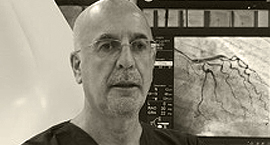 Prof Ciro Indolfi trained at the Cardiology Division of the University of California, La Jolla, with Dr John Ross, Jr. and at the University Federico II, Italy. He founded the Cardiology Division and the interventional program of the Magna Graecia University, Catanzaro, Italy, where he is now full Professor of Cardiology, Director of the Department of Medical and Surgical Sciences, Director of the interventional and CCU units, head of the experimental cardiology laboratory. Prof Indolfi first described the role of H-RAS and cAMP on SMC proliferation after balloon injury. His main research interests are vascular biology, coronary & structural heart interventions, coronary physiology and myocardial ischemia.
Prof Ciro Indolfi trained at the Cardiology Division of the University of California, La Jolla, with Dr John Ross, Jr. and at the University Federico II, Italy. He founded the Cardiology Division and the interventional program of the Magna Graecia University, Catanzaro, Italy, where he is now full Professor of Cardiology, Director of the Department of Medical and Surgical Sciences, Director of the interventional and CCU units, head of the experimental cardiology laboratory. Prof Indolfi first described the role of H-RAS and cAMP on SMC proliferation after balloon injury. His main research interests are vascular biology, coronary & structural heart interventions, coronary physiology and myocardial ischemia.
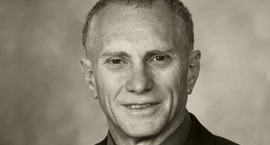 Prof Amir Lerman is a professor of medicine and a consultant in the cardiovascular division at the Mayo graduate school of Medicine. Dr Lerman serves as an associate chair and the director for research for the cardiovascular division and the director of the Mayo cardiovascular research center. Dr Lerman graduated from the Technion school of Medicine in Haifa Israel and completed his training in internal medicine, cardiovascular diseases and invasive cardiology at the Mayo Clinic. His interest is coronary physiology and imaging and innovation in cardiovascular disease as well as regenerative medicine. Dr Lerman published more than 480 manuscripts, book chapters and reviews; the NIH, AHA, and several foundations support his research.
Prof Amir Lerman is a professor of medicine and a consultant in the cardiovascular division at the Mayo graduate school of Medicine. Dr Lerman serves as an associate chair and the director for research for the cardiovascular division and the director of the Mayo cardiovascular research center. Dr Lerman graduated from the Technion school of Medicine in Haifa Israel and completed his training in internal medicine, cardiovascular diseases and invasive cardiology at the Mayo Clinic. His interest is coronary physiology and imaging and innovation in cardiovascular disease as well as regenerative medicine. Dr Lerman published more than 480 manuscripts, book chapters and reviews; the NIH, AHA, and several foundations support his research.
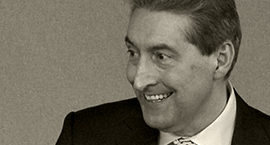
Prof Carlo Di Mario is currently Professor of Clinical Cardiology, NHLI, Imperial College of Sciences, Medicine & Technology, London. He is theme leader of the area Complex Coronary Artery Disease of the Cardiovascular Biomedical Research Unit of the Royal Brompton & Harefield Foundation Trust. He was appointed in 2010 Senior Investigator of the National Institute of Health Research. He maintains an active clinical involvement having performed more than 200 PCI per year in the last 10 years in London with the special interest in the treatment of chronic total occlusions, bifurcations, calcified lesions and diffuse disease. He is a regular TAVI operator and certified implanter for the Medtronic CoreValve and Edwards Sapien transcatheter aortic valves. In 2014 he successfully led a bid for the commissioning of MitraClip in his hospital (40/year for 3 years, worth £3.6 million only for the devices). He holds an NHS Bronze National Award. Professor Di Mario pioneered the use of intracoronary Doppler, pressure measurement, ultrasound and optical coherence tomography. These techniques have become the gold standard for physiological assessment of lesion severity and have revolutionised the technique of stent implantation with the use of high pressure dilatation which led to the universal application of this method in interventional cardiology. Professor Di Mario is now applying these intravascular techniques for the guidance of implantation of fully bioabsorbable stents and optimal stent apposition across bifurcations and in complex lesions. He has led or participated in studies and trials to improve the technical success of recanalisation of chronic total occlusion and demonstrate its clinical usefulness. He cooperated with Dr J. Davies to the development of the concept of iFR to facilitate assessment of lesion severity and discriminate the contribution of individual lesions, and with Dr A Lyon to the intracoronary delivery of SERCA-2 genes via adenoviral vectors in the CUPID2 trial. Prof Di Mario was Principal Investigator of the CARESS in AMI trial, a large multicentre trial showing that patients who receive fibrinolytic therapy for ST-elevation myocardial infarction benefit from early angioplasty. This trial and a subsequent meta-analysis have led to a change in the European Society of Cardiology and AHA/ACC Guidelines for treatment of STEMI patients.
 Dr Sukhjinder Nijjer is an Interventional Cardiology Registrar at the Hammersmith Hospital. He completed his PhD in invasive coronary physiology with the support of the highly prestigious Medical Research Council Clinical Research Fellowship at Imperial College. He is the author of many peer-reviewed publications and text books and has presented at major international conferences, including prizes at TCT-AP 2015, BCS 2015 and he has been runner-up for Young Investigator of the Year competitions held by the Academy of Medical Sciences, Royal Society of Medicine and the British Cardiovascular Intervention Society.
Dr Sukhjinder Nijjer is an Interventional Cardiology Registrar at the Hammersmith Hospital. He completed his PhD in invasive coronary physiology with the support of the highly prestigious Medical Research Council Clinical Research Fellowship at Imperial College. He is the author of many peer-reviewed publications and text books and has presented at major international conferences, including prizes at TCT-AP 2015, BCS 2015 and he has been runner-up for Young Investigator of the Year competitions held by the Academy of Medical Sciences, Royal Society of Medicine and the British Cardiovascular Intervention Society.
Sukhjinder’s work has focused on the impact of coronary intervention on invasive physiology, specifically how the changes can be predicted using iFR-Pullback and virtual-PCI. His work has demonstrated these technologies have the capacity to transform physiologically-guided intervention from vessel-level decision-making to a lesion-specific approach.
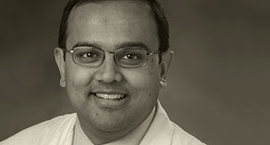
Dr Manesh Patel is cardiology section leader in Interventional Cardiology and is the Director of Cardiac Catheterization Laboratories for the Duke University Health System. Dr Patel previously served as the Director of Duke Cath Lab Research. His clinical interests include diagnostic and interventional coronary angiography, peripheral angiography and percutaneous intervention. He is involved in several clinical trials involving patients with vascular disease and in cardiac imaging. He is also a member of the American College of Cardiology Task Force for Appropriate use of Cardiovascular Procedures and is Chair of the American Heart Association Diagnostic and Interventional Cath Committee. Patel’s interest in cardiac imaging, quality of care, and cardiac devices is also evident in his research. His integration of these efforts into his roles at Duke was recognised in 2010 when he received the prestigious Duke Cardiology Fellowship Mentorship Award. In 2011, Dr Patel was named the endowed John Bush Simpson Assistant Professor of Cardiology.
In 2013, Dr Patel took over the role of Director of Interventional Cardiology and the Cardiac Catheterization Laboratories for the Duke University Health System with the goal of integrating patient-centered invasive care across the health system. Dr Patel has published over 150 peer-reviewed articles in high impact journals, several reviews and over 20 editorials. Most recently, his articles in the Journal of the American College of Cardiology, Journal of the American Medical Association, and the New England Journal of Medicine garnered national attention from the scientific and lay press. Patel received his medical degree from Emory University School of Medicine in 1997. He completed his residency at Duke in 2000, followed by fellowships in cardiology and interventional cardiology at Duke University.
 Dr Ricardo Petraco is a Cardiology Specialist Registrar and a Research Fellow at the International Centre for Circulatory Health and National Heart and Lung Institute at Imperial College London. Dr Petraco graduated from The Federal Faculty of Medical Sciences (FFFCMPA) and undertook his junior General Medical Training at the Santa Casa University Hospital in Porto Alegre, Brazil. He came to the UK in 2006 to start his higher specialist training in Cardiology. Throughout his career, Dr Petraco has been a high achiever on clinical and academic grounds. As an undergraduate, he was awarded two Scientific Initiation Scholarships by the National Research and Technology Council (CNPq, Brazil). In the UK, he worked as a junior Research Fellow at the Royal Brompton Hospital, in the Adult Congenital Heart Unit under Professor Gatzoulis. He helped to identify markers of poor prognosis in adult patients with congenital heart disease. After passing his membership examination (MRCP UK), he started clinical work as a Specialist Registrar in Cardiology at the Royal Brompton and St Mary’s Hospitals. He has completed his PhD in the pathophysiology of coronary artery disease, coronary haemodynamics and myocardial ischaemia.
Dr Ricardo Petraco is a Cardiology Specialist Registrar and a Research Fellow at the International Centre for Circulatory Health and National Heart and Lung Institute at Imperial College London. Dr Petraco graduated from The Federal Faculty of Medical Sciences (FFFCMPA) and undertook his junior General Medical Training at the Santa Casa University Hospital in Porto Alegre, Brazil. He came to the UK in 2006 to start his higher specialist training in Cardiology. Throughout his career, Dr Petraco has been a high achiever on clinical and academic grounds. As an undergraduate, he was awarded two Scientific Initiation Scholarships by the National Research and Technology Council (CNPq, Brazil). In the UK, he worked as a junior Research Fellow at the Royal Brompton Hospital, in the Adult Congenital Heart Unit under Professor Gatzoulis. He helped to identify markers of poor prognosis in adult patients with congenital heart disease. After passing his membership examination (MRCP UK), he started clinical work as a Specialist Registrar in Cardiology at the Royal Brompton and St Mary’s Hospitals. He has completed his PhD in the pathophysiology of coronary artery disease, coronary haemodynamics and myocardial ischaemia.
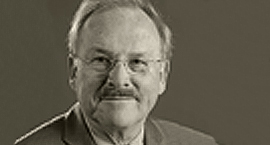 Prof Patrick W. Serruys with respected h-index – 145 is a professor of Interventional Cardiology at the Interuniversity Cardiological Institute of the Netherlands (1988-1998) and Erasmus MC. Since 1980 he was a Director of the Clinical Research Program of the Catheterization Laboratory, Thorax Center at Erasmus University, and till April 1, 2014 (retirement date) the Head of the Interventional Department, Thorax Center, Erasmus MC (University Medical Center Rotterdam), Rotterdam, The Netherlands. Since April 2013, he holds the position of Professor of Cardiology in the Cardiovascular Science Division of the National Heart and Lung Institute (NHLI) at the Faculty of Medicine, within the Imperial College of Science, Technology and Medicine, London.
Prof Patrick W. Serruys with respected h-index – 145 is a professor of Interventional Cardiology at the Interuniversity Cardiological Institute of the Netherlands (1988-1998) and Erasmus MC. Since 1980 he was a Director of the Clinical Research Program of the Catheterization Laboratory, Thorax Center at Erasmus University, and till April 1, 2014 (retirement date) the Head of the Interventional Department, Thorax Center, Erasmus MC (University Medical Center Rotterdam), Rotterdam, The Netherlands. Since April 2013, he holds the position of Professor of Cardiology in the Cardiovascular Science Division of the National Heart and Lung Institute (NHLI) at the Faculty of Medicine, within the Imperial College of Science, Technology and Medicine, London.
He is a Fellow of the American College of Cardiology and a Fellow of the European Society of Cardiology and scientific council of the International College of Angiology.
In 1996, he received the TCT Career Achievement Award and in 1997 he was awarded the Wenkebach Prize of the Dutch Heart Foundation. In 2000, he was awarded the Gruentzig Award of the European Society of Cardiology. In 2001, he held the Paul Dudley White Lecture at the American Heart Association in the USA. In 2004, he received the Andreas Gruentzig Award of the Swiss Society of Cardiology. In 2005, he held the 4th International Lecture at the AHA and Mikamo Lecture at the Japanese heart Association. In 2006, he received the highest award of the Clinical Council of the American Heart Association: the James Herrick Award. In 2007, he received the Arrigo Recordati International Prize (Italy) and the ICI Achievement Award (bestowed by the President of Israel – Shimon Perez). In 2008, he received the Einthoven Penning (Leiden). In 2009, he became Doctor Honoris Causa from the University of Athens. In 2011, he received the Lifetime Achievement Award, bestowed by the American College of Cardiology, in recognition of many years of service and invaluable contributions to the ACC. At the end of 2011, Prof Serruys received the Ray C. Fish Award, bestowed by the Texas Heart Institute, for outstanding achievement and contribution to cardiovascular medicine. In 2012, he received a Golden Medal of the European Society of Cardiology. In 2013, he became Doctor Honoris Causa from the Complutense University of Madrid. In 2016, he will become Doctor Honoris Causa of the Melbourne University, Australia.
 Dr Martijn van Lavieren is a research fellow at the department of Cardiology at the Academic Medical Center in Amsterdam and has a background in Technical Medicine. He is working together with Prof Jan Piek on evaluating the prognostic and diagnostic value of combined pressure and flow measurements in clinical practice in the DEFINE FLOW trial.
Dr Martijn van Lavieren is a research fellow at the department of Cardiology at the Academic Medical Center in Amsterdam and has a background in Technical Medicine. He is working together with Prof Jan Piek on evaluating the prognostic and diagnostic value of combined pressure and flow measurements in clinical practice in the DEFINE FLOW trial.

This essential guide is an educational activity intended for an international audience, specifically interventional cardiologists and cardiologists. However, other healthcare professionals involved in the care of coronary artery disease (CAD) patients will also find this topical.
This 2 day course general admission pass which covers registration, meals, and refreshments. After course free access to online course resources including powerpoint images, course videos, and links to other Simple Education resources.
Advances in Coronary Physiology course provides all you need to know to understand the basics of coronary physiology and what you need to do to implement coronary physiology into the cardiac catheter laboratory.
Understanding the background of coronary physiology
Understanding of coronary blood flow regulation in unobstructed and obstructed coronary arteries
Learn what you need to know to implement iFR and FFR in your laboratory
Learn about the guidelines for appropriate use and reimbursement